This blog series examines trends in state uses of federal stimulus funding for Career Technical Education (CTE). Stimulus funds were appropriated for emergency relief related to the coronavirus pandemic through the federal Coronavirus Aid, Relief and Economic Security (CARES) Act; the Coronavirus Response and Relief Supplemental Appropriations Act (CRRSAA); and the American Rescue Plan (ARP) Act. The five major stimulus funding streams for states and educational institutions include the Coronavirus Relief Fund (CRF), the Elementary and Secondary School Emergency Relief (ESSER) Fund, the Governor’s Emergency Education Relief (GEER) Fund, the Higher Education Emergency Relief Fund (HEERF), and Coronavirus State and Local Fiscal Recovery Funds.
![]() During a time of mass economic disruption caused by the coronavirus pandemic, preparing displaced workers and learners for high-quality, long-term job opportunities is essential to close the skills gap and address shifting labor market demands. Job and income losses resulting from the pandemic have disproportionately impacted women, Black and Latinx workers, and low-wage and non-college educated workers. These populations will be key to target with federal coronavirus relief funds.
During a time of mass economic disruption caused by the coronavirus pandemic, preparing displaced workers and learners for high-quality, long-term job opportunities is essential to close the skills gap and address shifting labor market demands. Job and income losses resulting from the pandemic have disproportionately impacted women, Black and Latinx workers, and low-wage and non-college educated workers. These populations will be key to target with federal coronavirus relief funds.
Some states are already investing federal funds in establishing and expanding credential and training programs to address critical skills shortages and build a highly-skilled, resilient workforce for the future. South Dakota invested $2.2 million in GEER funding to launch UpSkill, a program to support workers displaced by the pandemic through 24 fully- or partially-funded certificate programs within the state’s four technical colleges. There is a clear pathway for participants to earn an Associate of Applied Science or bachelor’s degree, and the programs are offered in virtual, in-person or hybrid modalities and aligned with labor market demand.
Similarly, Delaware leveraged $10 million of the state’s CRF allocation to create the Rapid Workforce Training and Redeployment Initiative, which creates a process for establishing fully-funded training and certification programs for individuals who are unemployed or underemployed. These programs, developed by the Delaware Workforce Development Board in consultation with the state Department of Labor, will provide necessary skills for in-demand occupations and connect learners to employers and open opportunities in the state labor market.
Finally, Texas created new and innovative credential programs. The state used GEER to fund $25 million in Texas Reskilling and Upskilling for Education (TRUE) Institutional Capacity Grants for community, state and technical colleges to support efforts to create, expand or redesign high-value postsecondary workforce credential programs. Proposed programs must be under six months long, aligned to industry needs, and developed alongside key stakeholders to qualify for these competitively-awarded grants. Texas also focused on re-engaging learners through a $46.5 million GEER allocation toward financial aid for individuals enrolled in programs centered on up-skilling or re-skilling displaced workers for in-demand fields. The initiative targets learners who have earned some college credit to ensure that they remain on track to attain a postsecondary credential.
These state efforts will ensure that displaced workers and learners who have been disproportionately impacted by the pandemic can connect with meaningful CTE opportunities and career pathways. What is notable about these initiatives is that they not only connect displaced workers with job opportunities, addressing immediate unemployment concerns, but help workers access better opportunities that are in demand and offer high wages. By strategically investing federal relief funds to build and scale short-term training programs that are driven by labor market demand, states can leverage the current crisis to build a stronger workforce and more economic opportunity for the future. Coronavirus relief funds continue to provide a valuable means of investment in establishing and expanding high-quality CTE programs for long-term learner success in a continually shifting labor market.
To learn more about how states have spent federal relief funds on CTE, please stay tuned for future Coronavirus Relief Funds blog posts and visit Advance CTE’s coronavirus resource page for additional resources.
Allie Pearce, Graduate Fellow


 Donald Walker (Michigan)
Donald Walker (Michigan)  Heather Covington (North Carolina) began her CTE journey as a National Board Certified business and marketing instructor and career development coordinator, and currently serves as Assistant Principal at Alston Ridge Middle School in Cary, North Carolina. She is a first-generation graduate with bachelor’s and master’s degrees in Information Technology and Business Education from East Carolina University, an Education specialist degree from Old Dominion University, and two master’s degrees in Instructional Technology and School Administration from North Carolina State University and University of North Carolina, respectively.
Heather Covington (North Carolina) began her CTE journey as a National Board Certified business and marketing instructor and career development coordinator, and currently serves as Assistant Principal at Alston Ridge Middle School in Cary, North Carolina. She is a first-generation graduate with bachelor’s and master’s degrees in Information Technology and Business Education from East Carolina University, an Education specialist degree from Old Dominion University, and two master’s degrees in Instructional Technology and School Administration from North Carolina State University and University of North Carolina, respectively. 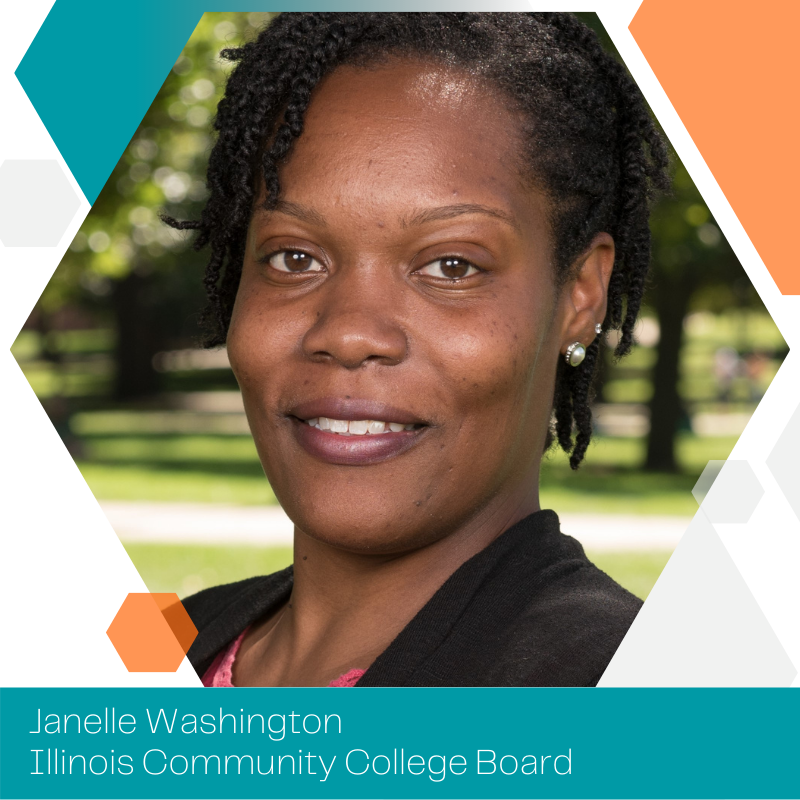 Janelle Washington (Illinois) previously held multiple positions in the criminal justice system prior to pursuing a career in higher education, and currently serves as a Director for Career and Technical Education at the Illinois Community College Board. She earned her bachelor’s degree in Criminal Justice from Southern Illinois University at Edwardsville and master’s degrees in Public Administration and College Student Personnel Administration from University of Illinois Springfield and Illinois State University, respectively.
Janelle Washington (Illinois) previously held multiple positions in the criminal justice system prior to pursuing a career in higher education, and currently serves as a Director for Career and Technical Education at the Illinois Community College Board. She earned her bachelor’s degree in Criminal Justice from Southern Illinois University at Edwardsville and master’s degrees in Public Administration and College Student Personnel Administration from University of Illinois Springfield and Illinois State University, respectively. My name is Candace Williams and I’m thrilled to be joining the talented team at Advance CTE! In my role as Senior Research Associate, I’ll be supporting Advance CTE’s data quality and research initiatives. I’ll be working on a number of projects, including the Postsecondary Data Initiative, the Credit for Prior Learning Shared Solutions Working Group, and a forthcoming study on state Career Technical Education (CTE) funding.
My name is Candace Williams and I’m thrilled to be joining the talented team at Advance CTE! In my role as Senior Research Associate, I’ll be supporting Advance CTE’s data quality and research initiatives. I’ll be working on a number of projects, including the Postsecondary Data Initiative, the Credit for Prior Learning Shared Solutions Working Group, and a forthcoming study on state Career Technical Education (CTE) funding. 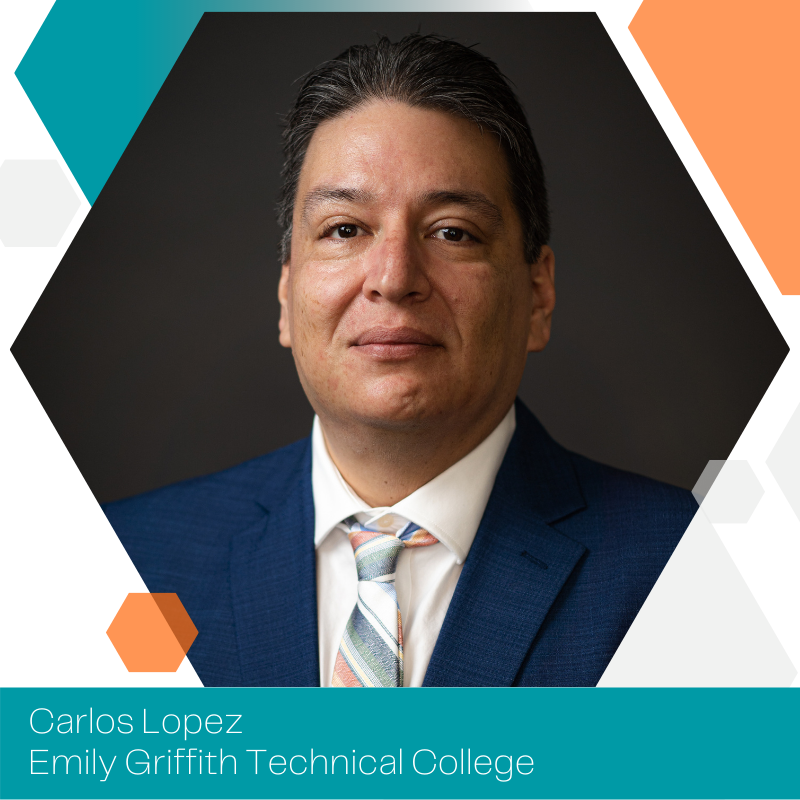 Carlos Lopez (Colorado) has over a decade of experience as an instructor, program coordinator and academic advisor at secondary and postsecondary institutions focused on historically marginalized learners. Carlos currently serves as the Associate Dean for the College of Health Sciences and Administration at Emily Griffith Technical College. They earned a bachelor’s degree in Psychology from Metropolitan State University of Denver and master’s degrees in Liberal Arts and Education Leadership and Policy Studies, Higher Education from St. John’s College – Santa Fe and University of Texas – San Antonio, respectively.
Carlos Lopez (Colorado) has over a decade of experience as an instructor, program coordinator and academic advisor at secondary and postsecondary institutions focused on historically marginalized learners. Carlos currently serves as the Associate Dean for the College of Health Sciences and Administration at Emily Griffith Technical College. They earned a bachelor’s degree in Psychology from Metropolitan State University of Denver and master’s degrees in Liberal Arts and Education Leadership and Policy Studies, Higher Education from St. John’s College – Santa Fe and University of Texas – San Antonio, respectively.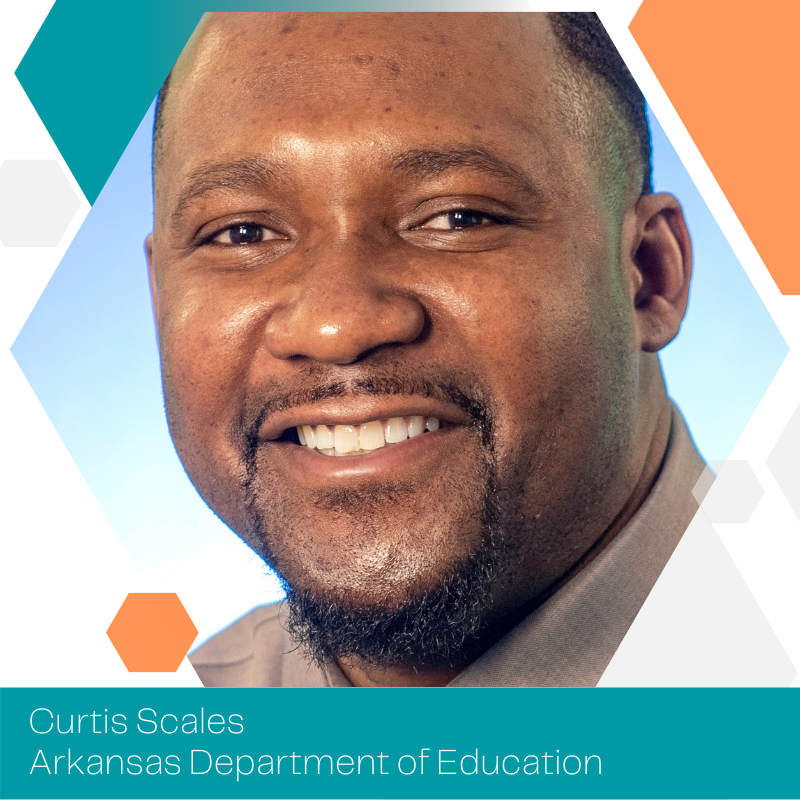 Curtis Scales (Arkansas) began his career in management training in the healthcare industry and translated his passion for wellness and supporting underserved populations into a career in education. He currently serves as the Program Manager for Special Populations at the Arkansas Department of Education. He earned a bachelor’s degree in Recreation Administration from the University of Arkansas, and master’s degrees in Management and Leadership and Human Resource Management from Webster University.
Curtis Scales (Arkansas) began his career in management training in the healthcare industry and translated his passion for wellness and supporting underserved populations into a career in education. He currently serves as the Program Manager for Special Populations at the Arkansas Department of Education. He earned a bachelor’s degree in Recreation Administration from the University of Arkansas, and master’s degrees in Management and Leadership and Human Resource Management from Webster University. Dr. Dimitria Harding (Minnesota) has over 15 years of experience in the CTE field working as a cytotechnologist before pursuing a career in higher education. Dr. Harding currently serves as a Dean of Health Sciences and Career and Technical Education at Minnesota State College. She received a bachelor’s degree in Health Science and a master’s degree in Community Health from Old Dominion University, and a doctorate in Organizational Leadership.
Dr. Dimitria Harding (Minnesota) has over 15 years of experience in the CTE field working as a cytotechnologist before pursuing a career in higher education. Dr. Harding currently serves as a Dean of Health Sciences and Career and Technical Education at Minnesota State College. She received a bachelor’s degree in Health Science and a master’s degree in Community Health from Old Dominion University, and a doctorate in Organizational Leadership.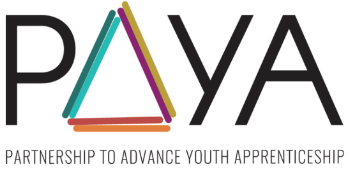 Youth apprenticeship programs provide learners with the opportunity to receive paid work experience during their high school years as a way to explore a possible career-focused pathway that can lead them to a family-sustaining wage. These programs also provide secondary and postsecondary credit providing an on ramp into pursuing additional education.
Youth apprenticeship programs provide learners with the opportunity to receive paid work experience during their high school years as a way to explore a possible career-focused pathway that can lead them to a family-sustaining wage. These programs also provide secondary and postsecondary credit providing an on ramp into pursuing additional education. 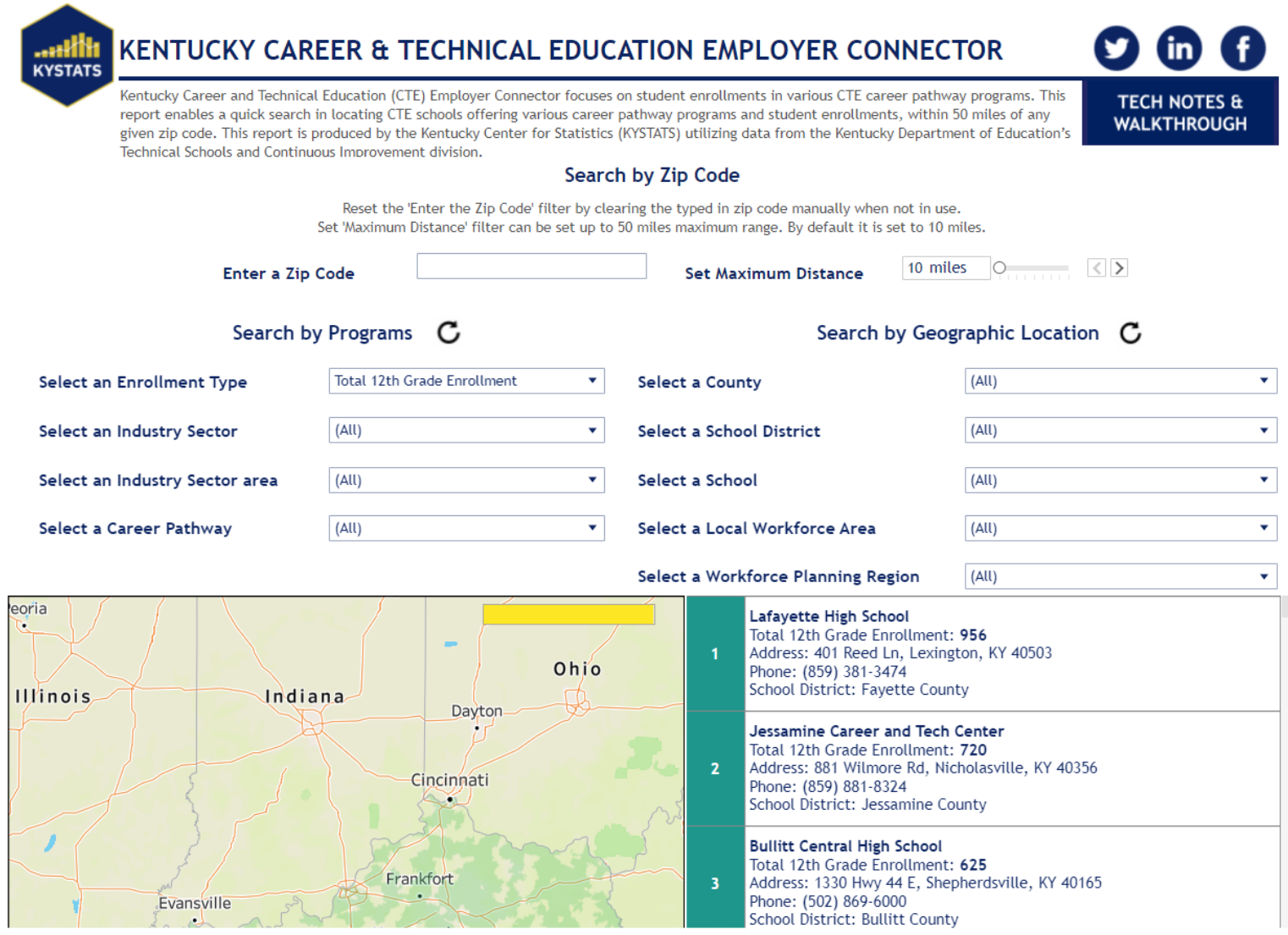
 Democratic lawmakers in Congress have made progress on a domestic spending package aimed at investing in the nation’s human capital infrastructure, including Career Technical Education (CTE). Meanwhile, a House subcommittee recently examined how states and school districts are making use of education-related pandemic aid while the U.S. Department of Education (ED) issued new nonregulatory guidance, announced changes to civil rights data collections and more.
Democratic lawmakers in Congress have made progress on a domestic spending package aimed at investing in the nation’s human capital infrastructure, including Career Technical Education (CTE). Meanwhile, a House subcommittee recently examined how states and school districts are making use of education-related pandemic aid while the U.S. Department of Education (ED) issued new nonregulatory guidance, announced changes to civil rights data collections and more.  Welcome Marcette Kilgore as the new State CTE Director in Texas. The Texas Education Agency, which serves as the state’s Perkins eligible agency, houses the team Marcette leads.
Welcome Marcette Kilgore as the new State CTE Director in Texas. The Texas Education Agency, which serves as the state’s Perkins eligible agency, houses the team Marcette leads. 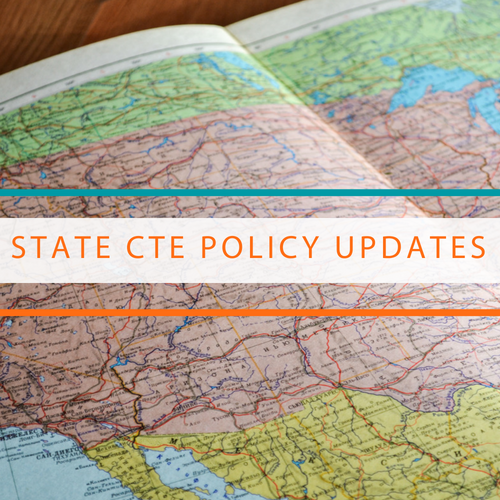 Preparing to enter the workforce is no easy task, especially as the COVID-19 (coronavirus) pandemic continues to transform the world of work. It is critical that apprenticeship, pre-apprenticeship and youth apprenticeship programs exist to allow learners of all ages to participate in significant work-based learning opportunities that connect their learning with on-the-job skills that they can leverage as they grow in careers of their choice. Pre-apprenticeship programs, for example, demonstrate
Preparing to enter the workforce is no easy task, especially as the COVID-19 (coronavirus) pandemic continues to transform the world of work. It is critical that apprenticeship, pre-apprenticeship and youth apprenticeship programs exist to allow learners of all ages to participate in significant work-based learning opportunities that connect their learning with on-the-job skills that they can leverage as they grow in careers of their choice. Pre-apprenticeship programs, for example, demonstrate 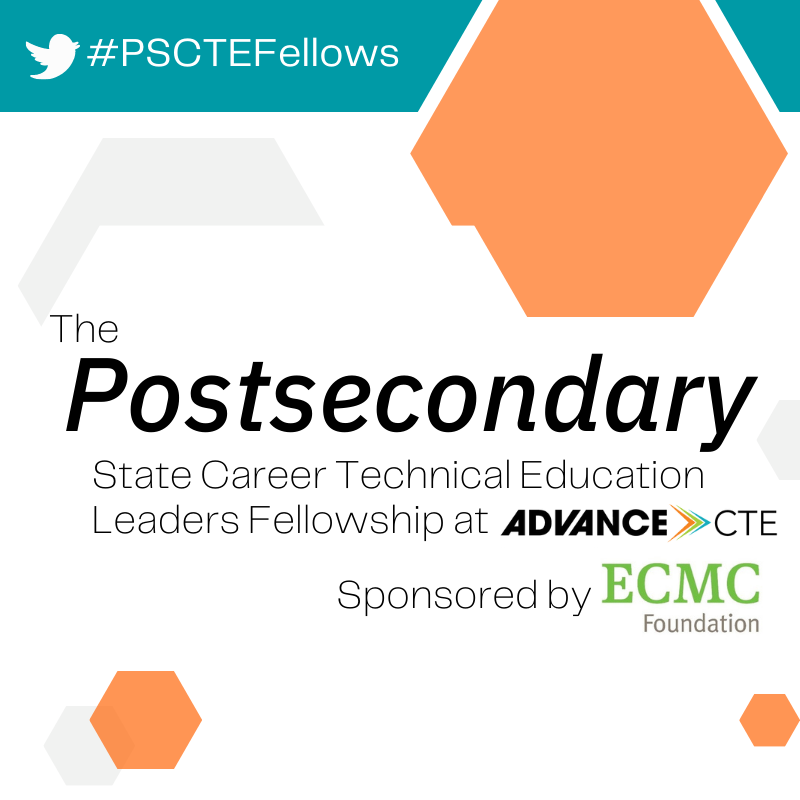 Last week, Advance CTE and ECMC Foundation announced the 15 Fellows joining the inaugural cohort of
Last week, Advance CTE and ECMC Foundation announced the 15 Fellows joining the inaugural cohort of  Meet Dan Hinderliter! Dan is a State Policy Associate at Advance CTE and supports a number of different national projects. As a site liaison for the
Meet Dan Hinderliter! Dan is a State Policy Associate at Advance CTE and supports a number of different national projects. As a site liaison for the